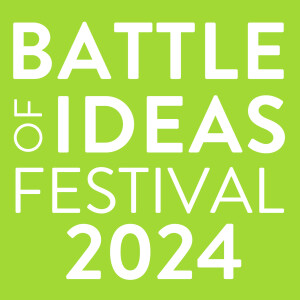
Tuesday Apr 01, 2025
Mainstream media and the crisis of trust
Recorded at the Battle of Ideas festival 2024 on Saturday 19 October at Church House, Westminster.
ORIGINAL INTRODUCTION
‘Don’t believe a word!’ ‘Biased!’ ‘Fake news!’ How many of us shout at the TV, have stopped reading newspapers and get our news from social media? The news as presented by the major broadcasters and national newspapers – historically a bedrock of any functioning democracy and a symbol of vibrant civic engagement – has rarely been so despised. General distrust in the mainstream media (MSM) seems more intense than ever. There are even disputes over the very terminology with which reporting is done – who gets dubbed a terrorist, far-right, extremist, even a woman.
Such deep ideological battles obstruct any meaningful examination of reporting on what is happening in the world. Suspicion of partisan reporting, what is reported and what is not, mean deeply cynical attitudes are commonplace. Whether it’s stories about the Israel / Gaza conflict, the grooming scandal, the fallout from the riots, or gender ideology – there’s a plethora of accusatory finger-pointing. Whether it is social-justice activists on one side or populist forces on the other, there seems agreement that much mainstream news output must be taken with a pinch of salt.
In reaction to the mistrust of what is sneeringly dismissed as the MSM, we have seen a growing alternative media ecosystem: online TV channels, e-magazines, podcasts, live-streamed discussions, often with huge audiences. But rather than being welcomed as proof of an appetite for current affairs, mainstream journalists and editors accuse such outlets of irresponsible, unsourced rumourmongering, one-sided propaganda and even issue calls to close down new insurgent media players like GB News. The rows about which media to trust are almost as polarised as the toxic disputes they are reporting on. Similarly, while MSM outlets are awash with fact-checkers and a plethora of unofficial bodies seeking to eradicate misinformation, in now-classic ‘post-truth’ style, these supposed impartial fact-checkers get dragged into politics, too.
So, who should we trust to find out about what’s happening in the world? Can we afford to dispense with regulated, reputable journalism that at least aspires to impartiality? Or does widespread distrust in the media indicate a healthily sceptical public, reluctant to make do with a narrow range of elite narratives? With distrust in any single news source prevalent, should we encourage the use of multiple sources, even if it risks some individuals going down disinformation rabbit holes? Or do we need to be careful of those who urge us to believe outlandish conspiracies and unverified tall tales? Can we build a new media landscape that – regardless of our political opinions – we can call upon for facts and reasoned analysis? Is the media an important democratic corrective or partially the cause of our polarised responses to the news events it reports and comments on?
SPEAKERS
Tessa Clarke
journalist; author; documentary reporter; board member, Academics for Academic Freedom (AFAF)
Jonny Gould
TV and radio presenter; journalist; host, Jonny Gould's Jewish State
Darren Grimes
presenter, The Saturday Five, GB News
Jenny Holland
writer and critic; former assistant, New York Times; author, Saving Culture (from itself) Substack
Jo Phillips
journalist; co-author, Why Vote? and Why Join a Trade Union?; former political advisor; fellow, Radix
CHAIR
Tom Collyer
executive, Pagefield; writer; alumnus, Debating Matters
No comments yet. Be the first to say something!